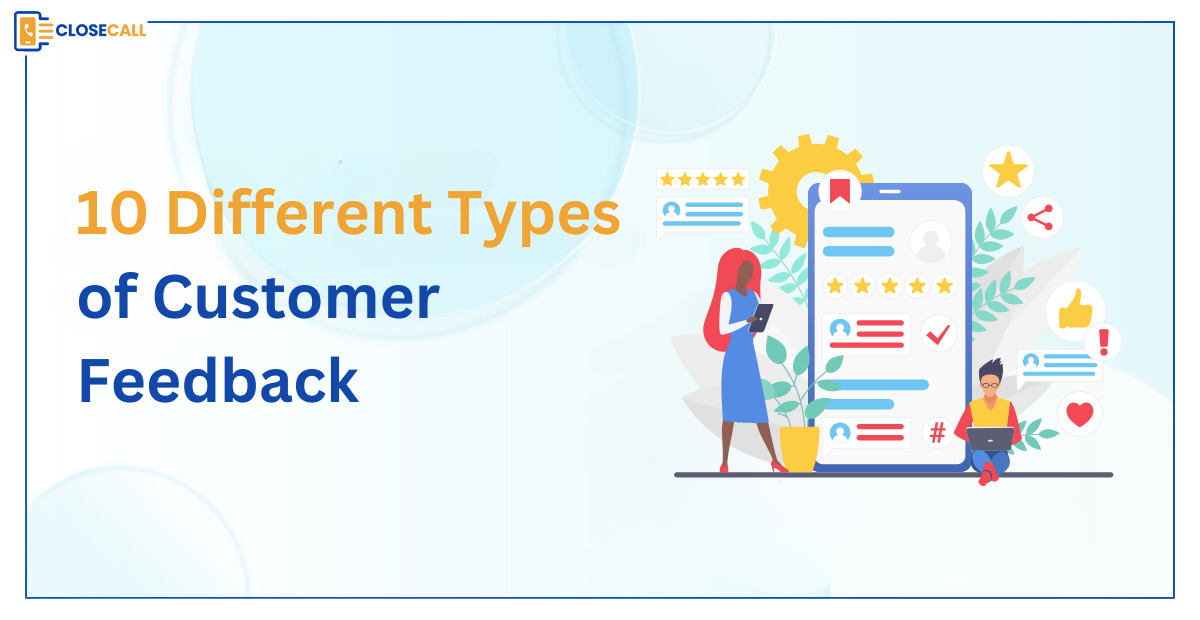As a sales manager, you can understand very well the importance of lead management. It is your key responsibility to upgrade sales performance in your business. For a company’s success, you need to consider lots of things. Focusing on the right lead is crucial for any sales executive. You want your sales team to come up with suitable leads, and they require a proper way to comprehend which leads are all set for nurturing. You can determine which leads are currently valuable for your time, money, as well as effort by using the tried-and-true structure provided by lead management. It is the perfect way to ensure that your sales team is setting their energy properly on high-quality leads that are most likely to boost the game of sales.
In this post, you will explore the meaning of lead management, its tools, and best practices.
What is Lead Management?
Lead management is the systematic mechanism of acquiring, nurturing, tracking, and converting potential leads or customers into actual clients. It entails tactics and equipment to draw in prospects, assess their interest area, and direct them down the sales funnel. It encompasses activities such as lead generation, nurturing, scoring, and routing to relevant sales teams. Effective lead management is all about the allocation of resources. Besides this, it enhances communication. Furthermore, it maximizes the likelihood of successful conversions, eventually ushering business on the track of victory.
Although they are in the very early phases of the sales funnel, leads are still highly significant. To guide these leads down the funnel and, hopefully, into a purchase, you will need to nurture them nicely into prospects. Regardless of your business kind, a sales funnel with a large number of leads is probably what you have. A lead management system helps you better organize leads throughout your sales funnel so you can adjust your strategies to engage and close more deals.
Why is Lead Management Important?
The foundation of the sales process is lead management. Gathering qualified leads—those who fit your target personas—and guiding them through the lead lifecycle as quickly as you can are the key objectives. It’s a dynamic and ongoing process that demands you to promptly follow up with leads, properly segment them, and allocate them to the relevant sales representatives, all while following up at the necessary intervals.
Effective lead management expedites the conversion process and improves the client experience. By making sure your leads receive pertinent information, you can avoid unintentionally annoying them with unnecessary marketing content.
Conserve your time and money. Your marketing and sales efforts can be concentrated where they matter most effectively by knowing which leads have the highest conversion rates.
It boosts earnings. Closing more sales by providing the appropriate leads with the proper information will eventually increase your bottom line.
Additionally, your lead management process may become a mostly self-sufficient relationship-building machine when you combine it with the power of automation.
Effective Lead Management Best Practices
Another challenge arises when you identify the reasons why your prospects are stuck: how can you clear the obstructions and move them down your pipeline?
The good news is that you can get those leads going again by implementing effective lead management strategies. To maximize income and turn leads into customers, effective lead management is essential. The following are some top techniques to enhance lead management:
Describe the Lead Criteria
Establish the parameters of a qualified lead based on engagement metrics, habits, and demographics. To select high-quality leads and concentrate efforts on prospects who are most likely to convert, establish lead scoring criteria.
Sharpen up your Communication Strategy
How do you communicate with prospects as they move through the various stages of your pipeline? To gradually push prospects to make a purchase, you will need to do more than just send out a monthly email blast to every person on your list.
First, consider your sales process and the needs of your leads at each phase. Next, divide those leads into several lists. A strategy should address the questions, worries, and pain points of your leads.
Put Lead Capture Mechanisms in Place
To gather leads, use a variety of platforms, including landing sites, social media, events, and online forms. Make sure your lead-collection forms are designed for conversion and are mobile-friendly and user-friendly.
Centralize Lead Data
Centralizing lead data in a CRM system provides visibility and accessibility for sales and marketing teams. The system gathers pertinent data to track lead progress and personalize communications, such as interactions, preferences, and contact information.
Automate Lead Routing Assign leads to the right sales representatives according to predetermined standards, like region, industry, or product interest, by putting automated lead routing rules into place. Make sure to promptly follow up with leads and keep them from slipping through the cracks.
Nurture Leads with Relevant Content
Create campaigns with targeted content and engage leads at every point of the buyer’s journey. Use email marketing, social media, webinars, and other platforms to distribute timely, relevant content that educates, fosters trust, and moves leads toward conversion. Moreover, streamline lead nurturing procedures. Workflows for nurturing leads should be continuously improved based on feedback and data-driven insights. Experiment with various cadences, content formats, and messages to see what works best for your target demographic and increases conversion rates.
Remember Data Protection Regulations
Over 137 nations throughout the world have passed legislation about privacy and data protection. In Europe, the General Data Protection Regulation (GDPR) is one of the most well-known. Data protection by design is a fundamental component of this legislation. It entails integrating ethical usage and data security into the core of your company.
Make sure that each lead you add to your database has explicitly consented to the storage of their data. Keep it only for the duration and use specified in your terms and conditions.
Enable Sales and Marketing Alignment
To guarantee smooth lead handoffs and consistent messaging, encourage cooperation and alignment between the marketing and sales teams. Establish mutual objectives, lines of communication, and feedback loops to promote cooperation and group achievement.
Monitor and Examine Take the Lead in Performance
To evaluate lead performance and pinpoint areas for development, track key performance indicators (KPIs) such as conversion rates, lead velocity, and pipeline velocity. Utilize reporting and analytics tools to learn more about the preferences, behaviour, and engagement patterns of your leads.
Encourage Cooperation between Sales and Marketing
Since marketers are involved in lead generation, sales and marketing must work closely together to transfer leads. Regrettably, businesses frequently experience conflict and miscommunication between marketing and sales. Because lead management software compels both teams to define what constitutes a “qualified” lead, it fosters collaboration between them.
Linking marketing automation software with customer relationship management (CRM) software is a major project component, as lead management necessitates strong collaboration between the sales and marketing teams. It allows leads to be shared and data to be exchanged.
A deeper understanding of the customer’s previous interaction with the marketing team can be gained by your sales team through the integration of your marketing software with your CRM. Sales can proceed with the lead more easily if they can see that the customer has viewed a webpage or read a report.
Businesses may improve lead management procedures, boost conversion rates, and eventually spur revenue development by implementing these best practices and engaging their target audience more successfully.
Lead Management Process
Depending on its requirements, each business can create a slightly customized lead management system. The procedure often consists of distinct phases for locating qualified leads, acquiring leads, classifying leads, and guiding leads toward becoming devoted clients.
- Define a Qualified Lead
A prospective client who is a good fit for your company is referred to as a qualified lead. Making sure that everyone in your organization understands the requirements for qualifying leads is one of the first stages in lead management. In this manner, you can go after the proper clients and establish a rapport with them.
- Set up a Standardized Lead-scoring System
This method assists marketers or sales representatives in assessing a lead’s propensity to purchase a business’s goods or services. Typically, it entails assigning a number to each lead depending on their behavior, indicating the level of sales-readiness.
- Create a detailed customer journey map and take advantage of lead-scoring software.
The interactions a qualified lead has with a brand, from discovery to purchase and beyond, are combined to form the customer journey. You can see exactly where each lead is in the sales funnel by mapping out this trip. For instance: Are they still merely seeking information about your company, or are they contemplating a purchase?
- Create procedures for contacting each kind of lead at each stage of the sales funnel.
It makes sense to have a clear strategy for engaging leads at different stages of their customer journey. For example, you might want to get an email address from a potential lead who is just beginning to learn about your product so you can send them additional information on how it can help them. There will be distinct actions needed for each level.
- Establish a procedure for fostering leads consistently until they become champions
Establishing trust with your leads is crucial. It may entail engaging with them on social media or sending them regular emails with promos. The goal is to keep them engaged and interested until they turn into devoted clients.
Benefits of Lead Management
Businesses looking to increase overall efficiency and effectiveness and optimize their sales and marketing processes can benefit from lead management in several ways. Among the principal advantages are:
Establish Immediate Communication
An effective lead management approach is crucial to making quick connections that can eventually grow into solid, long-lasting relationships.
Every lead needs to be taken extremely seriously immediately to maintain a steady flow through the sales funnel.
Communicating with leads and resolving their concerns is much simpler when the process is transparent.
According to a survey, 35–50% of sales go to the first person to reply to an inquiry.
A prompt answer improves perceptions and shows that you are sincere in your desire to assist a business in overcoming its growth-related obstacles. It increases the incentives for people to work with you.
Increased Rates of Lead Conversion
Based on the interest and engagement level of leads, lead management assists organizations in nurturing and prioritizing these contacts. Businesses may concentrate their efforts on high-quality leads that have a higher chance of becoming customers by putting lead scoring and segmentation methods into place. It will increase conversion rates and boost sales performance.
Easily Access Lead Information
As we all know, lead management keeps things tidy and well-organized. Thus, lead information is readily available in a well-organized structure.
With everything at your fingertips, you can effectively organize and rank your leads. You can make better use of your time to accomplish your goals.
Enhanced Customer Engagement
Businesses can interact with leads throughout the buyer’s journey in a timely and personalized way using effective lead management. Businesses can forge closer bonds with their clients, win their trust, and increase client satisfaction and loyalty by providing pertinent material and messaging that is customized to each lead’s interests and preferences.
Streamlined Sales Process
Lead management tools and procedures can streamline the sales process by automating repetitive duties like lead routing, follow-up, and tracking. Businesses may shorten sales cycles, minimize manual labour, and boost productivity by giving sales teams access to real-time lead information and insights.
Increased Marketing Return
Businesses may monitor and assess the success of their marketing campaigns and initiatives with the help of lead management. Businesses may optimize marketing expenditure, discover high-performing channels, and more strategically allocate resources to get a greater return on investment by examining critical data like lead generation sources, conversion rates, and customer acquisition expenses.
Increased Revenue Opportunities
Companies can find new avenues for revenue growth and increase their clientele through efficient lead management and a steady stream of qualified prospects. Businesses may convert leads into paying customers and generate long-term revenue growth by nurturing leads gradually and remaining at the top of consumers’ minds with offers and good content.
Improved Data Insights and Visibility
Businesses can gain essential insights into lead behaviour, preferences, and interactions across several touchpoints through lead management. Businesses can better understand their target market, see trends and patterns, and make well-informed decisions to maximize their sales and marketing strategies by gathering and evaluating lead data.
Improved Customer Experience
At every point in the buyer’s journey, leads will receive timely and pertinent communication if the lead management process is carried out properly. By providing a smooth and customized experience, companies may stand out from rivals, foster customer loyalty, and encourage favourable word-of-mouth recommendations.
Better Alignment Between Sales and Marketing
Lead management facilitates coordination and cooperation between marketing and sales teams by offering a single, centralized platform for lead monitoring, feedback, and communication. By exchanging ideas and cooperating toward shared objectives, businesses may improve lead handoff procedures, boost communication, and create more unified and successful sales and marketing campaigns.
Lead management is essential to a company’s ability to draw in, interact with, and turn leads into devoted clients. Businesses may optimize their sales and marketing processes, generate revenue growth, and achieve long-term success in today’s competitive marketplace by putting strong lead management strategies into place, using technology, and gaining data-driven insights.
Latest Stats Related to Lead Management
- According to the most recent data on lead management advancement, the use of CRM software (customer relationship management) is growing, with 65% of organizations claiming they will do so by 2023. It suggests that the significance of well-organized lead management is becoming increasingly apparent.
- The use of marketing automation software is also growing. According to the study, 54% of marketers place a higher priority on raising engagement rates, indicating a shift in focus toward lead nurturing and relationship building.
- Companies are using data analytics more often to manage leads. According to research, 34% of marketing teams utilize attribution models to assess how well their efforts are performing, which enables them to make better data-driven lead management choices.
- Despite progress, several problems still exist. There is potential for improvement in overall lead management strategy, as evidenced by research showing that 40% of marketing and sales professionals believe that their biggest barrier to lead generation success is a lack of an effective strategy.
Now, you can understand the scenario and know the importance of lead management for any business. That is why you need to make lots of effort to get the potential leads and turn them into your customers.
Automation for Lead Management
Since lead management ought to be self-sufficient, a lot of companies employ automation. The following strategies will help you save time while handling leads and other marketing operations tasks:
- Keep tabs on your leads automatically. You can set up automation so that lead information is automatically sent into your CRM or a spreadsheet, making it simpler than ever to track your prospects, regardless of how you get leads—from forms, ads, email campaigns, or all of the above.
- Forward customized greetings. There is no requirement for a sales team member to greet a lead who is entering their information for the first time on the other side of the screen. Send them a welcome email or text greeting that is tailored to their role and interests automatically. To achieve this, you can use marketing automation.
- Carry out nurturing efforts automatically. Throughout the buyer lifecycle, automation can assist you in running lead nurturing campaigns by automatically delivering leads stuff like discounts and event invitations.
How to Choose a Lead Management System?
Please use software to manage your leads instead of doing it by hand. Keep the following things in mind when selecting a lead management system:
- Fit for the Industry: Though most lead management systems are universal and can be applied to any business, some are more focused on B2B relationships, and others are more oriented toward B2C enterprises. Furthermore, you could have fewer options due to the stringent regulatory standards of certain industries, such as finance and healthcare.
- Scalability: Even if you had hundreds or even tens of thousands of leads, could the system still handle all of your lead collecting and classification needs? Certain software has modular architectures that let you change or add features to suit your company’s demands.
- User-friendliness: It’s important to find a balance between usability and personalization. The system you select should be strong and sufficiently adaptable to meet the specific requirements of your company without confusing employees.
- Cost: Have you evaluated the upfront and ongoing expenses of each system? As your company expands, you might have to upgrade to a more expensive plan or pay extra for services like installation or data migration.
The Final Words
Businesses may organize sales-worthy leads more effectively with the help of lead management. When the time comes to streamline the way, you collect and follow up on leads and evaluate whether your current sales tools and software are up to the task of handling modern lead management. While managing this manually is next to impossible, businesses can acquire, track, qualify, distribute, and nurture leads at scale with the aid of lead management software without adding too much to their sales force. Besides lead management tools, you can use call tracking software for your business. It’s time to open up a communication channel between sales and marketing after you have a firm understanding of lead management. In the end, this is crucial to the accomplishment of your strategic vision, supported by the tiny, daily actions carried out by your sales and marketing professionals. Lead management does not have to be difficult or disorganized. To save time in creating the ideal plan for enticing potential customers, automate your lead management procedure.



